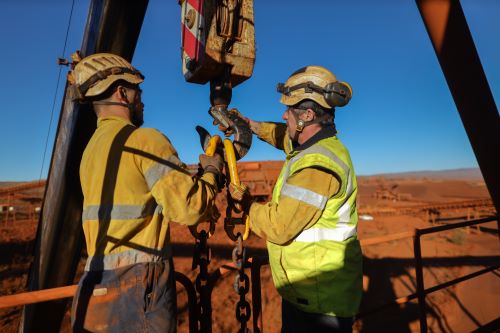
What Does an NCCCO Rigger Do?

At West Coast Training, our accredited teachers and trainers specialize in training workers in heavy equipment and providing top-notch certification programs. Our students can maximize their earning power when they complete any one of our courses and become competitive at their company and in their industry. Hands-on instruction is our favorite way to bring those classes into the real world—practical instruction and field training mean students are learning and their success happens in real-time.
One of our courses is the NCCCO Crane Operator and Rigger training. A rigger is an individual who has been trained and certified to handle and move loads in accordance with National Commission for the Certification of Crane Operators (NCCCO) regulations. The NCCCO is a nationally recognized rigger certification program.
But what does an NCCCO rigger do, and what is required to receive these certifications?
Definition
As stated, a rigger is certified to handle and move loads, using various heavy equipment. Whether you become a Rigger I or Rigger II depends on which certifications you receive through various courses, classes, or instruction. Knowledge and skill set might be different based on which classes you have previously taken. Even if you have another occupational title on the worksite, such as electrician, millwright, or mechanic, you may also be referred to as a rigger when you’re working as an operator of this specific equipment.
Safety
Riggers conduct themselves safely. One of the certifications a student will receive early in the course is for tower climbing fall-protection training. The health and safety of our students, our staff, and our community members is our highest priority. Teaching students to know the correct way to operate the equipment and conduct themselves around the machinery is a top priority for our instructors. Nervous about heights? Students who experience this anxiety may train and certify as self-erecting tower crane operators. These cranes do not require operation from an elevated cab. Equipment inspections will also be part of the course.
Training
Hands-on training includes the operation of multiple construction cranes. Students will learn to rig loads with a hook block and overhaul ball, using the concrete bucket, clam-shell, or drag-line attachments. Operating in the field for more than 50 percent of the course, students will learn to perform designed lifts, setting up cranes, practicing smooth operating techniques and tandem lifts, blind lifts, boom assembly, and signaling, among other tasks.
Graduates of the NCCCO rigger course will enter the industry as competent operators of hammerhead, luffing-jib, self-erecting tower cranes, hydraulic boom mobile cranes, and lattice boom mobile cranes. At the completion of the course, graduates will be able to obtain 9 (nine) NCCCO certifications.
Testing
West Coast Training is an accredited NCCCO testing facility, which means students have an advantage when it comes to the testing stage. The course is tailored to students so they will have the first-hand knowledge and skills to excel throughout testing. There will be written and practical sections for the exams, which are free. However, if a retest is required in case of failure the first time, there will be a nominal testing fee.
Is a career in cranes right for you? We have a way to find out! Take the crane career training readiness quiz. Once you complete it, you’ll receive a personalized report with your strengths and social style and positions you’re best suited for.
